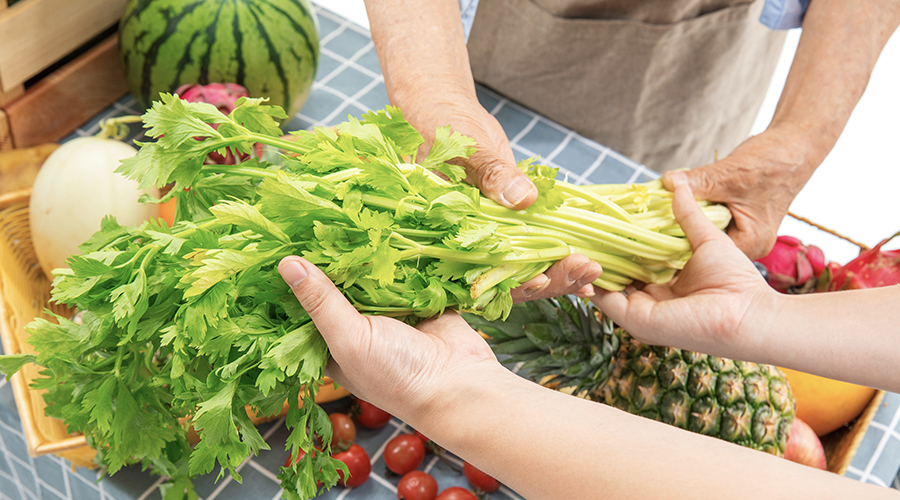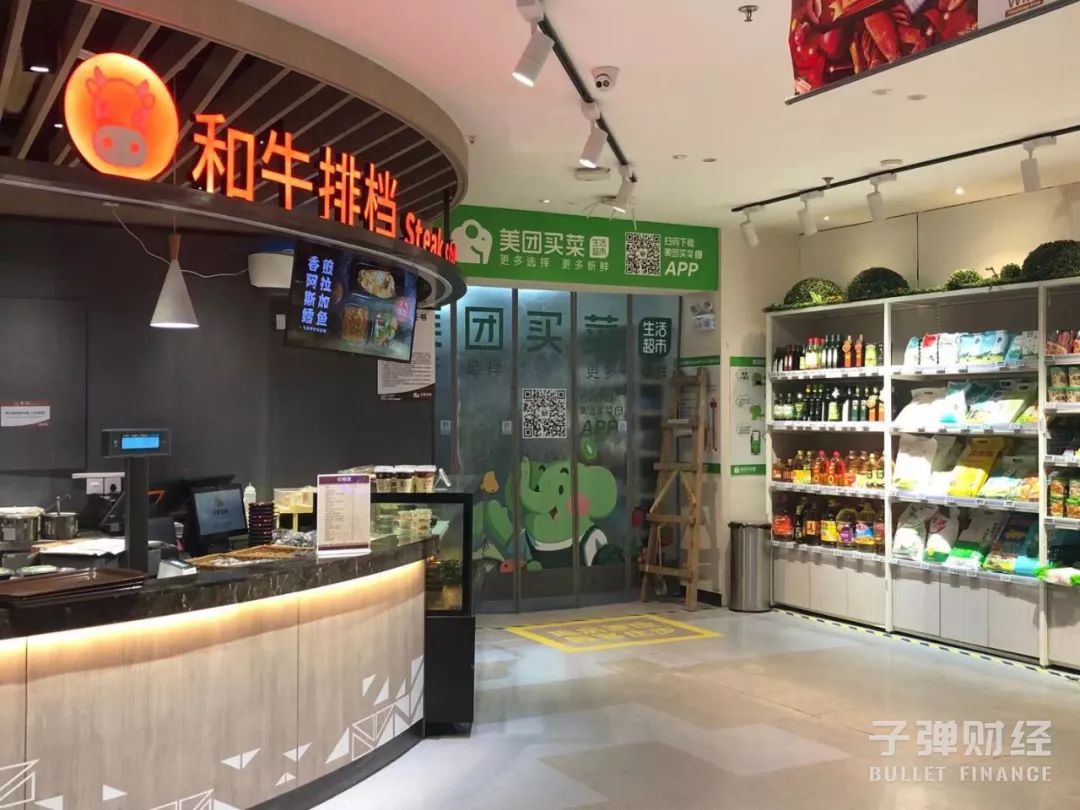Can Meituan take this “hard bone” fresh?
Editor’s note: This article is from WeChat public account “ Bullet Finance ” (ID : wwwhygc), author: Feng Yu, Zebian | total egg

“Using Meituan to buy food for 19 yuan, you can get a dozen eggs.” In major residential areas in Beijing, the Meituan App for offline promotion of the App Store is full of stars-compared to the group purchase war years ago Today, the “Ground Push Iron Army” of the US Mission is still undiminished.
After encountering obstacles in exploring the big store model, the Meituan fresh food business is reaching out to urban residents: so that the civilian service station is the base, with three meals of fresh products and daily necessities, and radiating a radius of 3 kilometers around it. Residents provide distribution and pick-up services.
Since its launch, Meituan has set up convenience service stations in many places, including more than 40 stations in Beijing.
The rapid advancement of the US regiment’s iron army seems to be incompatible with the current industry atmosphere.
In the just past 2019, the fresh e-commerce industry that was originally given high expectations by capital has frequently exploded. Shutdowns, bankruptcies, and broken capital chains have become annual keywords-players who are keen to burn money have paid the price.
In 2020, the rectification of the industry will continue to accelerate, and whether it can run out of the profit model has become a key indicator for capital.
Is there an exception for Meituan?
1. Self-proclaiming of “paradox”
At the beginning of 2019, when Meituan went shopping, it was not very eye-catching.
Users can access the product homepage through apps and applets. The platform focuses on three meals including fresh vegetables, meat and poultry eggs, rice noodles and oils, and promises to be delivered to the door within 30 minutes at the fastest, aiming at the daily high-frequency consumption of the residential community.
The convenience service station behind this service, namely the front warehouse, is a high-frequency vocabulary for the fresh produce industry in 2019.
In the context of traditional fresh food business, most e-commerce companies purchase agricultural products from suppliers, and then store them in urban warehouses. In addition to providing refrigerated storage services, the central warehouse also needs to have the function of a distribution center: to deliver goods to stores throughout the city.

Although the urban central warehouse covers a wide area but is not flexible enough, community front warehouses have been derived—the area is about 100-500 square meters and the SKU is 1000-3000. It integrates warehouse, sorting, and distribution. It is enough to cover the surrounding residential area within 3 kilometers.
Meituan’s “App + Front Warehouse” shopping model took the lead in Shanghai and then moved to Beijing and Wuhan. However, earlier in Beijing and Shanghai, only real-time delivery services were provided. After the US group bought vegetables in Wuhan in July 2019, it launched the self-pickup service of “order today and pick up the next day” and gradually spread to other pilot cities. .
The “App + front warehouse” model is not new. Previously, Pupu Supermarket, Dingdong shopping for food, and daily fresh produce have implemented the “online operation + offline front warehouse” model. Compared with the fresh store, the front storehouse eliminates the decoration cost, and the product can be displayed at the maximum limit. In addition, it does not need to have too many staff members, and the cost is relatively low, which can meet the needs of rapid expansion of the enclosure.
However, “Bullet Finance” found that compared to the conventional distribution model, the self-service service of Meituan shopping may be a little “strange”.
Tong Bo (a pseudonym) familiar with the operating model of fresh e-commerce told Bullet Finance, “For users in first- and second-tier cities, the front warehouse delivery service experience is good. In contrast, young people Or self-pickup may be less acceptable. “
To verify this claim, Bullet Finance visited the Meituan shopping site in Beijing Wangtai Botai International Business Center.
It is puzzling that the front storehouse is set inside the small elephant fresh store, which was originally a store for Meituan to explore the “fresh retail + on-site dining” model. The front warehouse is not open to consumers. It is not like a store-in-store, but more like a warehouse of an ordinary retail store. There are not many customers at the entire site, which seems quite deserted.

(Photo by Feng Yu)
Since the pick-up site and the fresh food store are in the same location, it will not only confuse consumers, but also imply contradictory business logic-“Consumers can shop by themselves in fresh food stores, why use beauty After buying food online, go to the store to pick it up? “Tong Bo pointed out.
Besides picking up the AND gateIs the overlap of stores causing a waste of resources?
At the Beiyuan Qiushi East Street Meituan shopping site, “Bullet Finance” saw that the front storehouse was located at the bottom of the residential building (referring to the first and second floors of the house), from a narrow door In and out, the warehouse area was less than 100 square meters visually.
For potential users passing by here, the front warehouse is not a store, lacks the drainage effect, and has limited appeal to new users. For nearby residents, Meituan does not charge distribution fees, and online distribution is obviously more convenient than self-lifting. Therefore, the self-lifting mode is unavoidable.
After the first-tier and second-tier cities run into walls, the self-lifting mode may be more popular in third-tier and fourth-tier cities. This also explains why Meituan chose the third pilot city in Wuhan for its grocery shopping—because of the high density of urban buildings, the lack of a vegetable market, and the low cost of pick-up and distribution, it has low customer acquisition costs and is easy to expand quickly.
But from the perspective of most people ’s consumption habits, the self-sale pre-sale model of “order today and pick up the next day” seems to be unfriendly to the “temporary intention” of fresh produce consumption. Most of the first demand is “buy and eat”.
The self-lifting mode is obviously a new round of e-commerce experiments by Meituan. However, its opening is already in danger.
2. Fresh food business has been defeated repeatedly
The various “test water” measures for buying vegetables from Meituan are not difficult to see the adjustment of the Group’s fresh food business strategy.
Meituan, which serves as a core force for local life services, was once considered to have a scene advantage when expanding its fresh food business. In fact, the US Mission has also gone through many detours.
As early as 2017, Meituan tested the “Catering + New Retail” model and opened a “Palm Fish Fresh” store in Beijing. In addition to traditional fresh products, it also provides fresh aquatic products and dine-in areas. Provides home-to-shop and home-to-home delivery services. The model is an online celebrity brand called Hema Xiansheng that integrates standard warehouses. One year later, the fresh food supermarket was renamed “Xiaoxiang Fresh”, and new stores were set up in many places.
However, with the reshuffle of the fresh food industry in 2019, Baby Elephant Fresh has also closed five stores in Wuxi and Changzhou. Today, Baby Elephant Fresh only retains 2 stores in Beijing.

(Photo by Feng Yu)
In addition to the contraction of the strategy, the recent incident of a thunderstorm in the same industry will probably cause trouble for the US team.
In November 2019, fresh e-commerce e-commerce radish suddenly fell into a crisis of closing stores and breaking the capital chain, which triggered chain reactions such as wage arrears and supplier arrears.